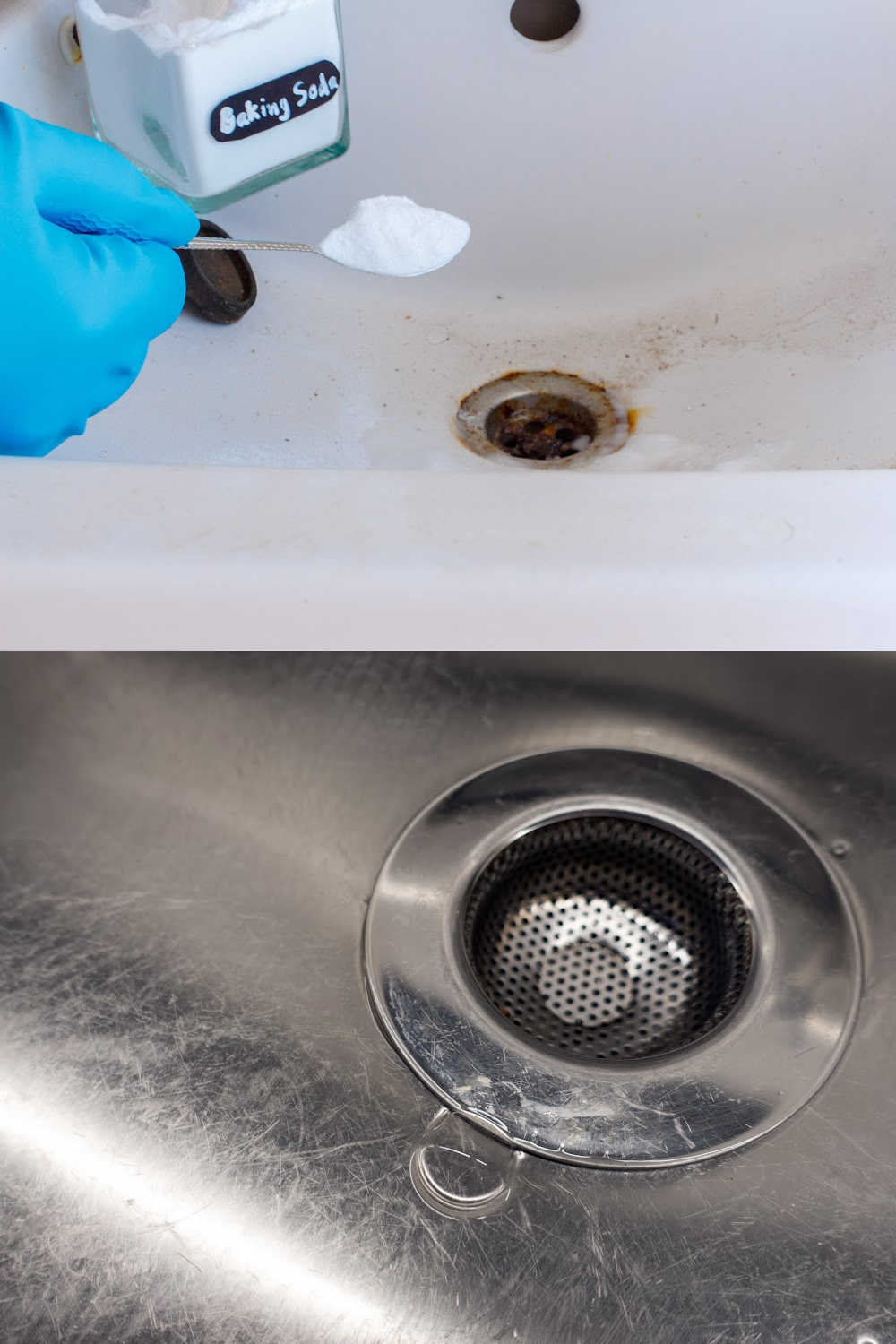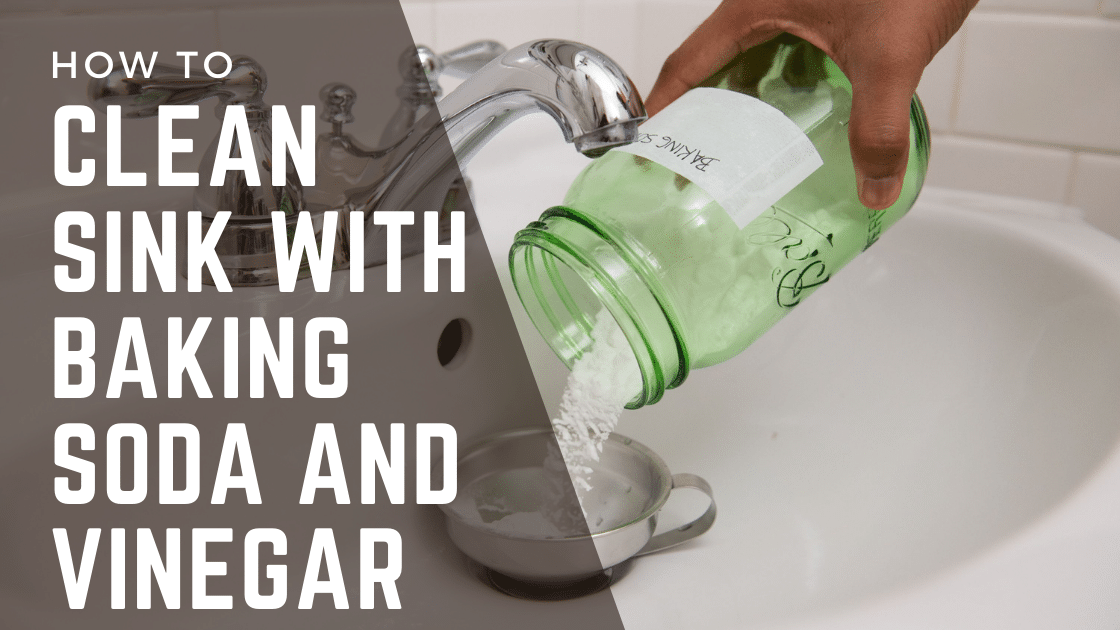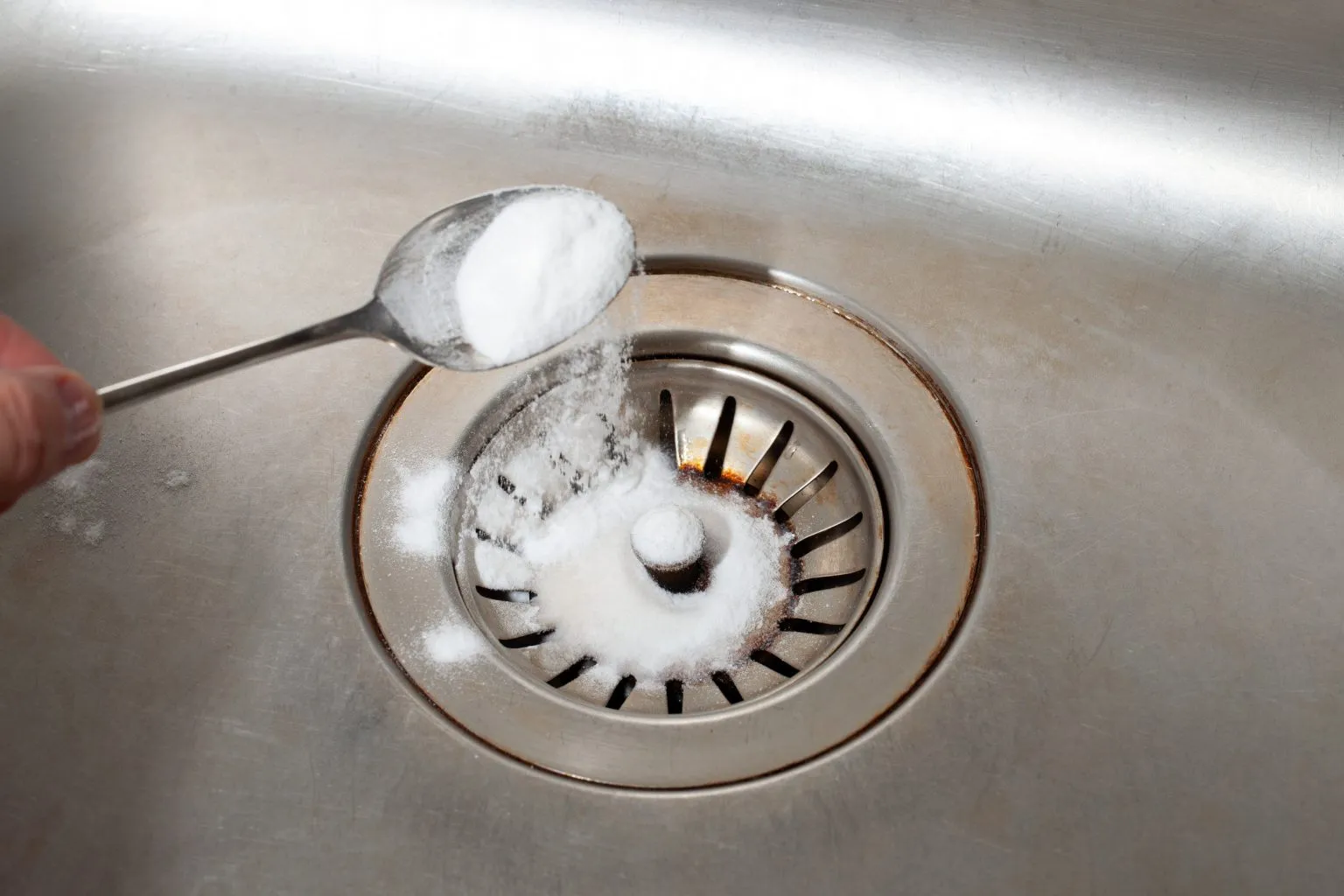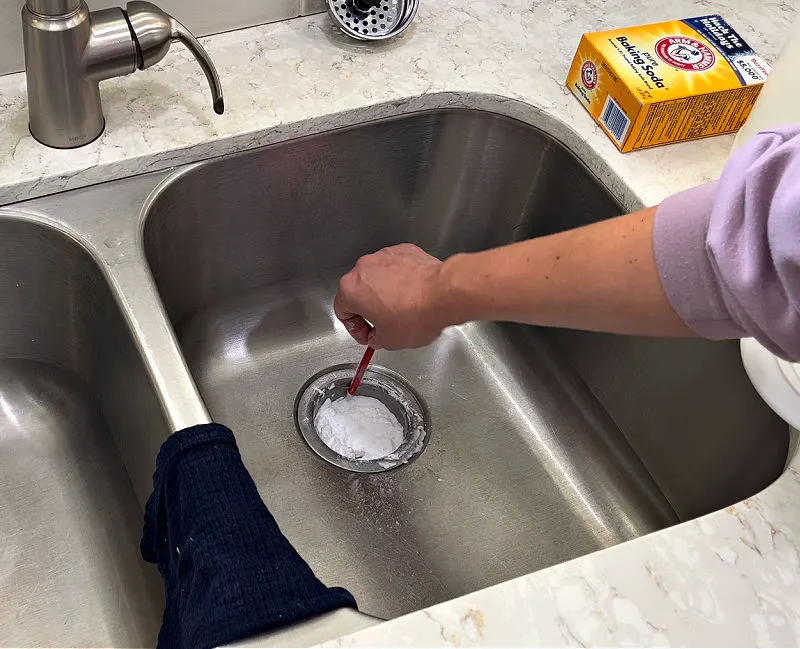Baking Soda To Clean Sink Drain

The kitchen sink, a ubiquitous feature of modern households, often suffers from a slow or clogged drain, becoming a breeding ground for unpleasant odors and potential health hazards. Chemical drain cleaners, while seemingly effective, pose risks to both the environment and human health due to their corrosive nature. A growing number of homeowners and plumbers are now turning to a readily available, cost-effective, and environmentally friendly alternative: baking soda.
This article explores the efficacy, safety, and broader implications of using baking soda as a drain cleaner, delving into the science behind its cleaning action, comparing it to conventional methods, and examining expert opinions on its suitability for various drain-related issues. It aims to provide readers with a comprehensive understanding of this simple yet powerful solution, enabling them to make informed decisions about their drain maintenance practices.
The Science Behind the Fizz: How Baking Soda Works
Baking soda, scientifically known as sodium bicarbonate, is a mild alkali with the chemical formula NaHCO3. Its cleaning power lies in its ability to react with both acids and bases, neutralizing odors and breaking down grease and grime.
When combined with an acid, such as vinegar (acetic acid), baking soda produces carbon dioxide gas. This effervescence helps to dislodge debris and loosen buildup within the drainpipe.
The abrasive nature of baking soda also contributes to its cleaning action. The fine particles act as a gentle scrubbing agent, further aiding in the removal of stubborn residue.
Baking Soda vs. Chemical Drain Cleaners: A Comparison
Traditional chemical drain cleaners often contain harsh chemicals like sodium hydroxide (lye) or sulfuric acid. These substances can effectively dissolve clogs, but they come with significant drawbacks.
Chemical drain cleaners are highly corrosive and can damage pipes, especially older or more delicate plumbing systems. They also pose a serious risk of chemical burns if splashed on skin or eyes.
Furthermore, these chemicals can contaminate water sources and harm aquatic life when flushed down the drain. Baking soda, on the other hand, is biodegradable and non-toxic, making it a far safer alternative for both the environment and users.
The Baking Soda Method: A Step-by-Step Guide
Using baking soda to clean a sink drain is a straightforward process. Here's a commonly recommended method:
Step 1: Clear any standing water from the sink. This ensures that the baking soda can directly reach the clog.
Step 2: Pour about one cup of baking soda down the drain. Follow this with one cup of white vinegar.
Step 3: Let the mixture fizz for 30 minutes to an hour. Cover the drain with a plug or cloth to contain the reaction.
Step 4: Flush the drain with hot water. This will help to wash away any remaining debris.
For stubborn clogs, repeat the process or let the mixture sit overnight before flushing. This can provide more time for the baking soda and vinegar to break down the blockage.
Expert Opinions and Professional Perspectives
Many plumbers and cleaning professionals advocate for using baking soda as a preventative measure against drain clogs. Regular use can help to maintain drain flow and prevent buildup from accumulating in the first place.
According to The Environmental Protection Agency (EPA), using safer alternatives like baking soda reduces the risk of exposure to hazardous chemicals in homes. Their recommendations promote environmentally sound cleaning practices for a healthier living environment.
"We often recommend baking soda and vinegar as a first line of defense for minor clogs," says John Smith, a licensed plumber with 15 years of experience. "It's a safe and effective way to address common drain issues without resorting to harsh chemicals."
"However, it's important to note that baking soda may not be effective for all types of clogs. Severe blockages caused by hair or foreign objects may require professional attention," Smith adds.
Limitations and Considerations
While baking soda is a valuable tool for drain maintenance, it's not a miracle cure. It is best suited for addressing minor clogs and preventing buildup.
For serious blockages, such as those caused by tree roots or collapsed pipes, professional plumbing services are necessary. These situations require specialized equipment and expertise.
It's also important to avoid using baking soda in drains that have been treated with chemical drain cleaners. The combination of these substances can create dangerous chemical reactions and potentially damage pipes.
Looking Ahead: The Future of Green Cleaning
The growing awareness of environmental and health concerns is driving a shift towards greener cleaning practices. Baking soda represents a simple yet effective example of how everyday household items can be used to solve common problems safely and sustainably.
As research continues to explore the benefits of natural cleaning agents, we can expect to see even more innovative and eco-friendly solutions emerge. These alternatives will not only protect our health and the environment but also empower individuals to take control of their cleaning routines in a responsible and informed manner.
The resurgence of baking soda as a drain cleaner highlights the enduring value of time-tested remedies and the increasing demand for sustainable solutions in our modern world. As we continue to prioritize both effectiveness and safety, baking soda is likely to remain a staple in many households for years to come.



:max_bytes(150000):strip_icc()/how-to-clean-a-stinky-drain-5207454-04-8b0885bf2a564afcbd5bd46be951e51d.jpg)














